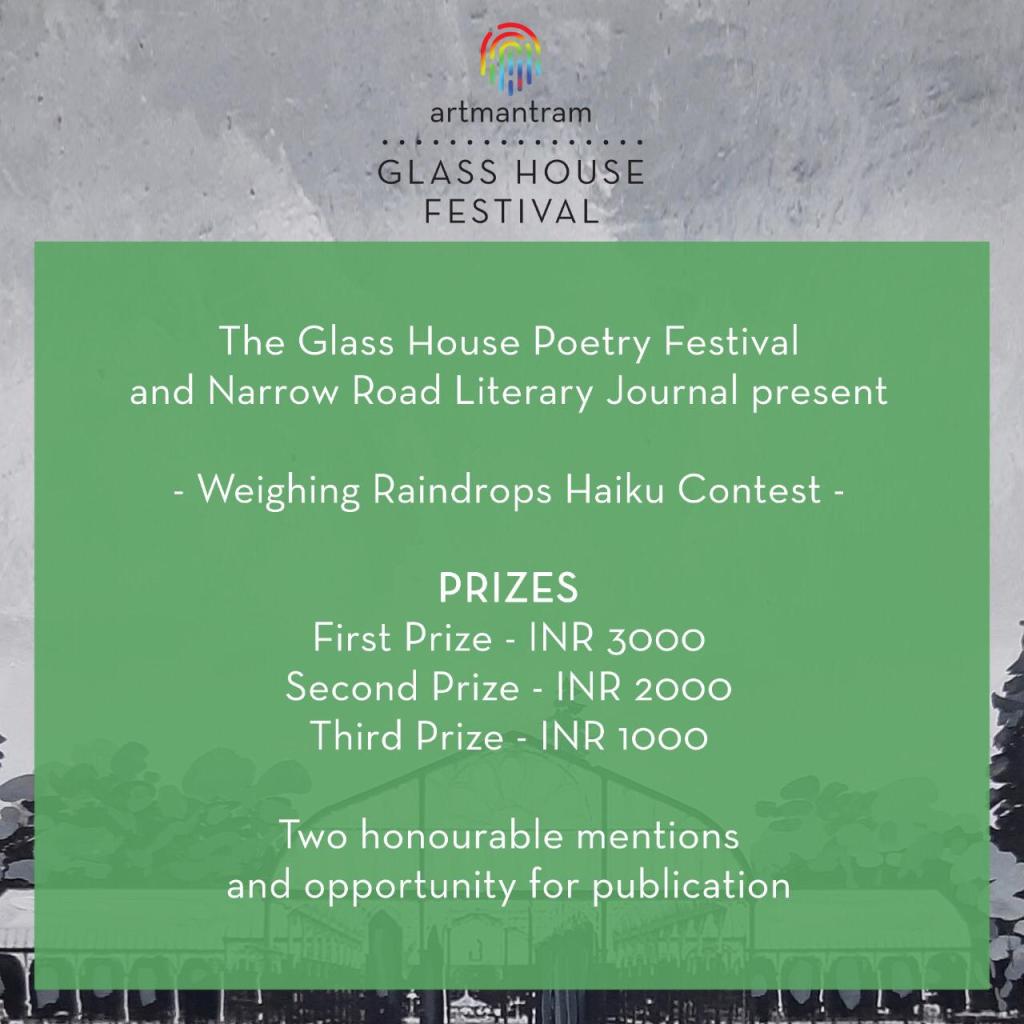
arrow Road shook hands with the ArtMantram Foundation to curate the first-ever haiku contest at their literary e-festival “Glass House Literary Festival”. Narrow Editors Rohini Gupta, Paresh Tiwari and Raamesh Gowri Raghavan doubled up as judges.
The theme was rain, and the judges laid out the following criteria:
- Most important, you need familiarity with the form of haiku. Just words written in three lines don’t make a haiku. Sayings and abstractions put in three lines are not haiku.
- We do not require the strict 5-7-5 format used in Japanese haiku. It can become stilted in English. Anything less than 17 syllables is fine. The three lines are not a single sentence. Without the break, it may be poetry, but it’s not haiku. A break can be indicated by a dash, but no other punctuation, or capital letters are needed.
- Bad haiku tries to explain. For example, you show a cat doing something strange in line 1 and 2 and explain what it’s about in the last line. Don’t. Let the images speak for themselves.
- Yes, strong, vivid images make a haiku stand out. Don’t write platitudes. Haiku must have strong and vivid imagery, preferably taken from real life. Sitting at a desk and making up what you have not experienced rarely leads to good haiku. It’s often called ‘desk ku’, no more than an intellectual exercise without the depth which comes from personal experience.
- There is one more thing a good haiku has – surprise. The ‘hai’ part of haiku means surprise. It’s no use writing the predictable. Make sure there is something new and unexpected to lift the haiku above the ordinary.
- And lastly, if you can do this one thing, you have a shot at the grand prize. Make us feel. Show us images with deep feelings attached. Most haiku never get this far. If you can do this your writing will reach a new level.
- Three lines may seem short but haiku is by no means an easy form to learn. It takes a lot of practise, a lot of reading and double that time in writing. If you don’t put in the practice, we will know – the quality of your haiku will reveal it.
129 entries poured in from all over the world on the theme of ‘rain’. The haiku were anonymised and judged individually on a scale of one to ten. After the first round, 25 made it to the long-list.

A second round of collaborative (and often acrimonious) judging whittled down the long-list to the list of winners, honourable mentions and the rest of the shortlist, totalling 15 haiku. Narrow Road will be publishing the shortlisted haiku in a future issue.

The winners were announced on 26th July 2020 at the Grand Finale of the Glass House Festival over Zoom video conference. We are proud to present them here:
